Interactive thesis on the application of smart contracts (enablers), and cross-community usage of the public domain (assets)
@nocturnal2359 on Twitter
If anything is to be learned from previous phases, it is that the belief in technology — in the purest sense — which leads to innovation is far removed from the widespread acceptance of said advancements.
And as new use cases are posited, so too niche enablers are created to address them — or more accurately — validate their viability; soon after which, capital to accelerate development manifests.
But neither position (the first) nor funding are accurate indicators of category success and long term adoption. As the experimental, mechanic-focused scenarios of the early rarely translate to the constructs of choice, convenience, and control that are necessary for societal acceptance at any meaningful scale.
And on the concept of adoption: the first thousand users need no convincing, as they are the builders. But to attract the first billion — it is not an exercise in recruitment, more so in pattern identification and behaviour recognition.
So how to observe cohorts in action, away from the fixation on technology and concerned instead with the community dynamic and making do with the tools available?
As observed in the psychographic analysis of household consumers across a wide selection of categories; in which Persona A in Market 1 has more in common with Persona A in Market 2, than their domestic population — does the same apply to members of decentralised communities?
Can prioritising human connection (despite anon) and knowledge sharing toward collective achievement provide a stronger foundation for a cross-community alliance that leads to long term project relevance — both in terms of rewarding experiences, and financial value for members?
Project: Phases
Intake
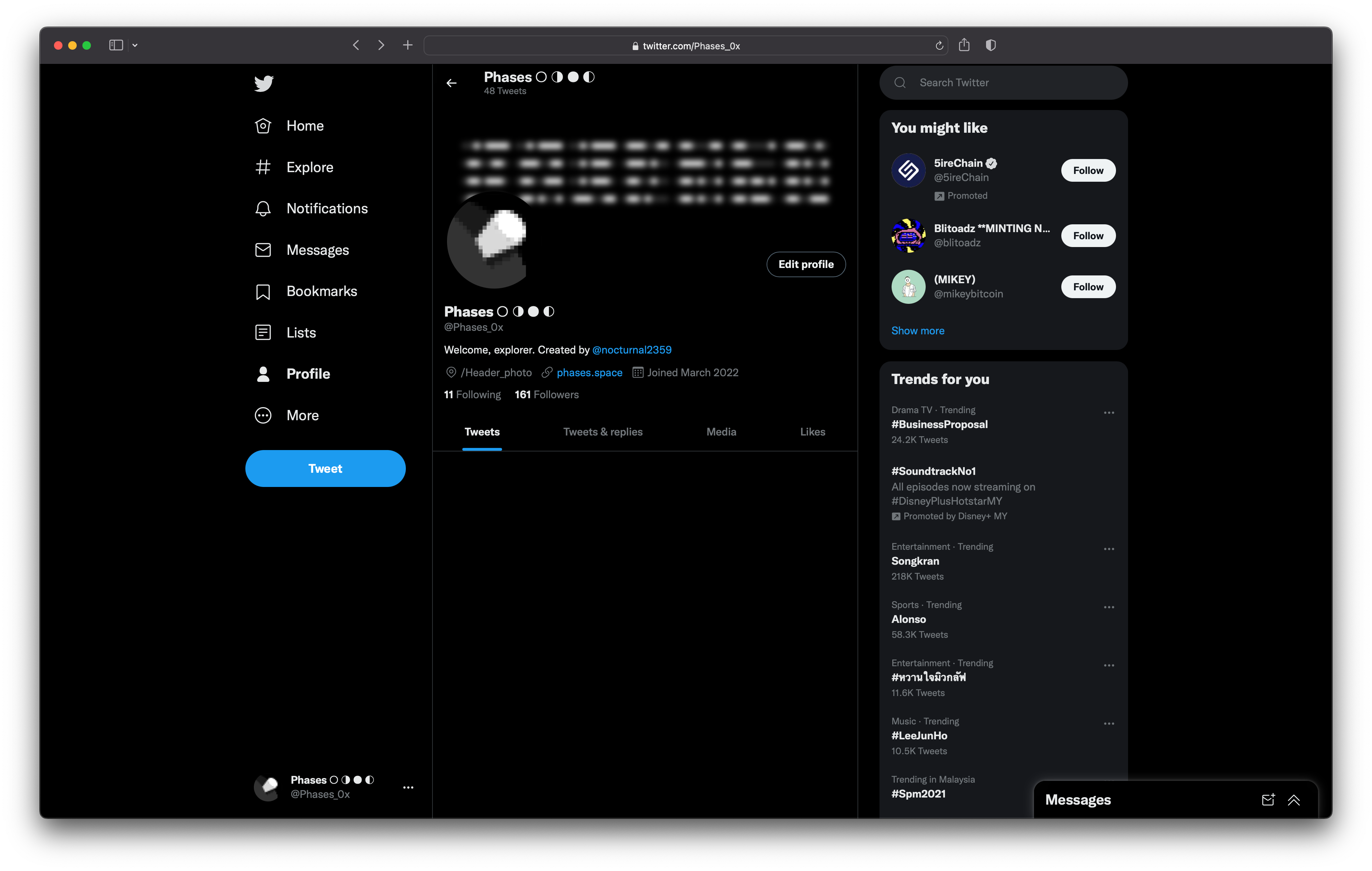
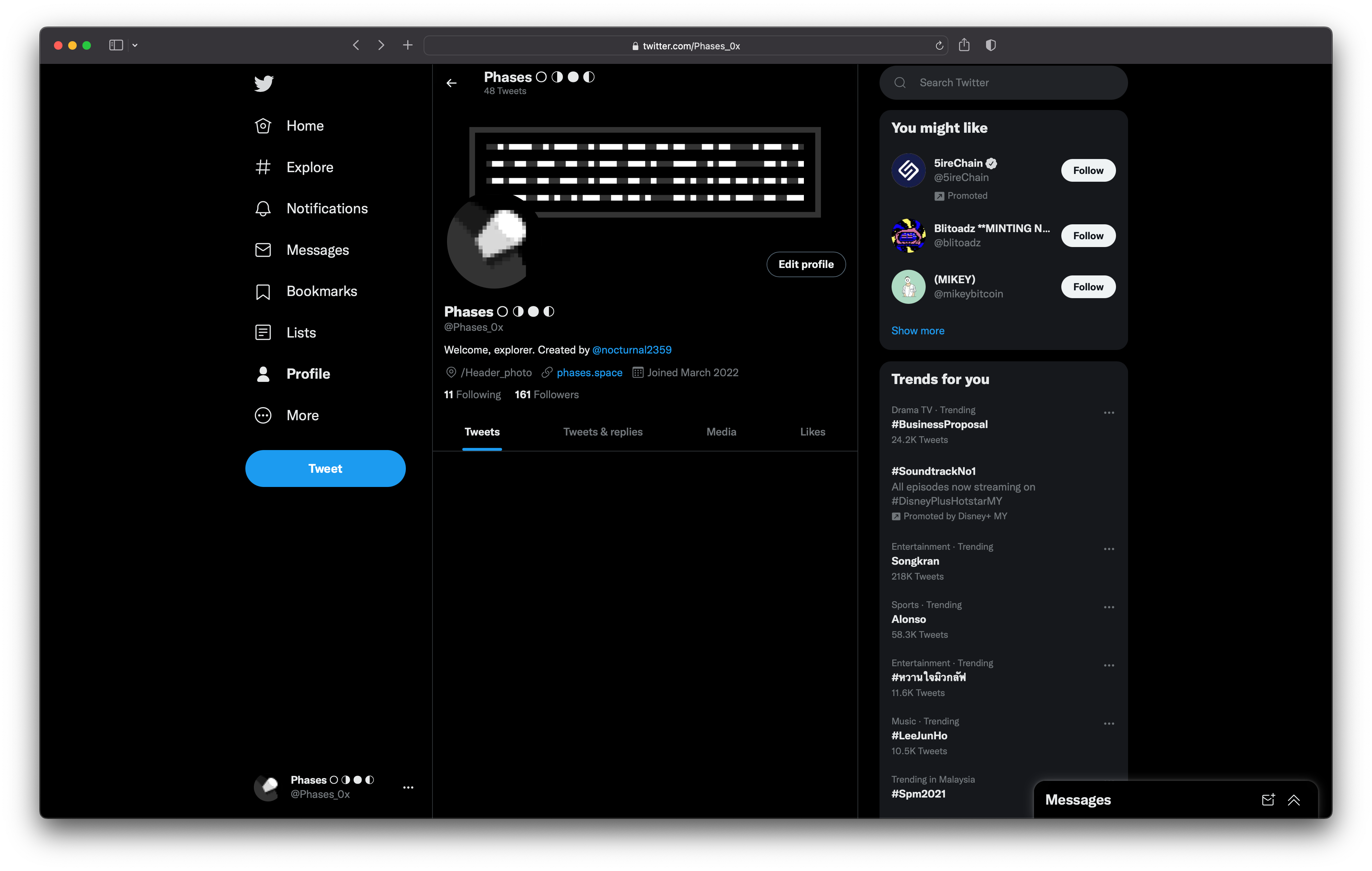
— Phases ○ ◑ ● ◐ (@Phases_0x) April 5, 2022
The pieces of eight will lead you to an island
— Phases ○ ◑ ● ◐ (@Phases_0x) April 4, 2022
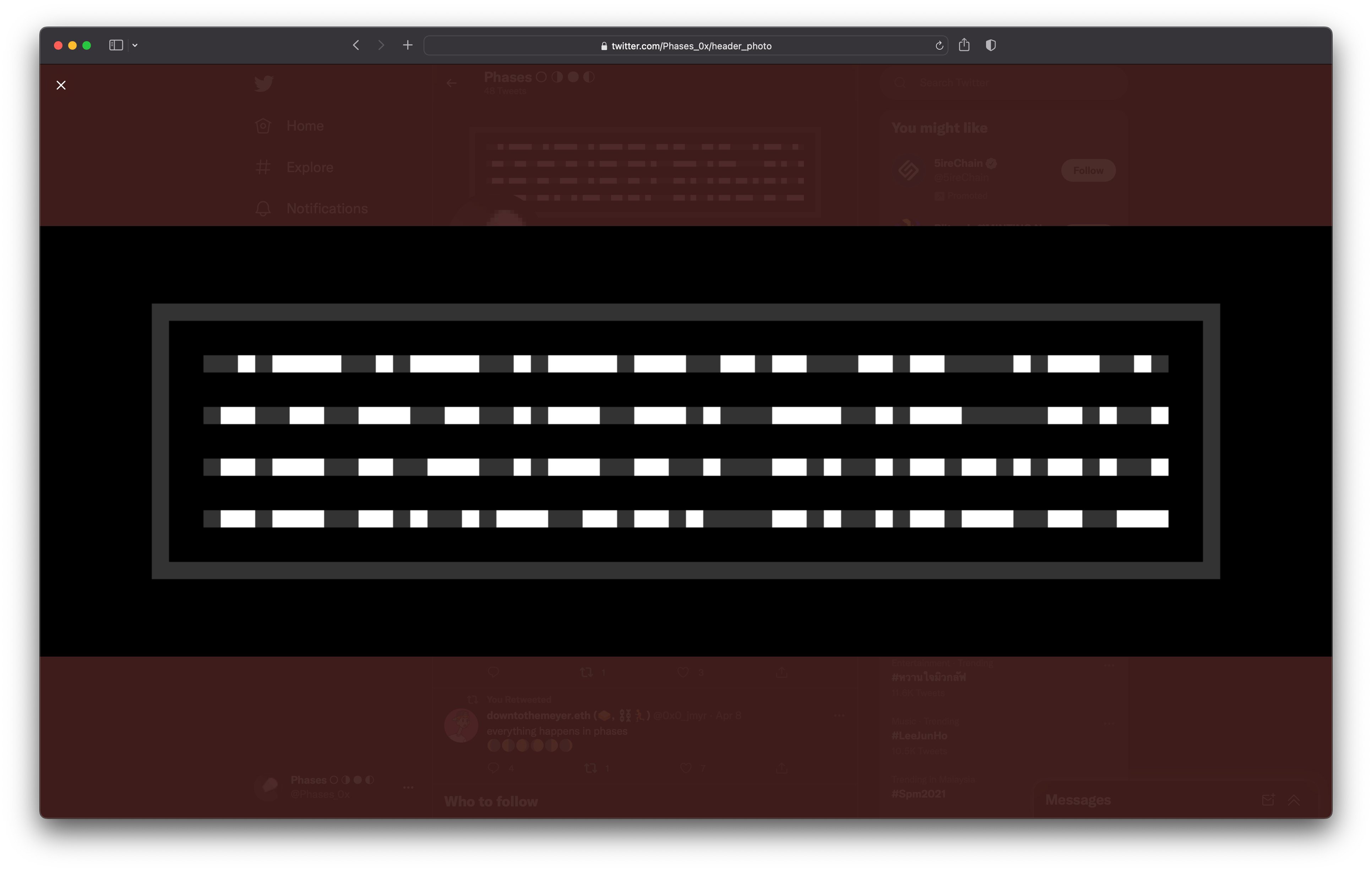
What three words will help you search for, that which will help you see
— Phases ○ ◑ ● ◐ (@Phases_0x) April 4, 2022
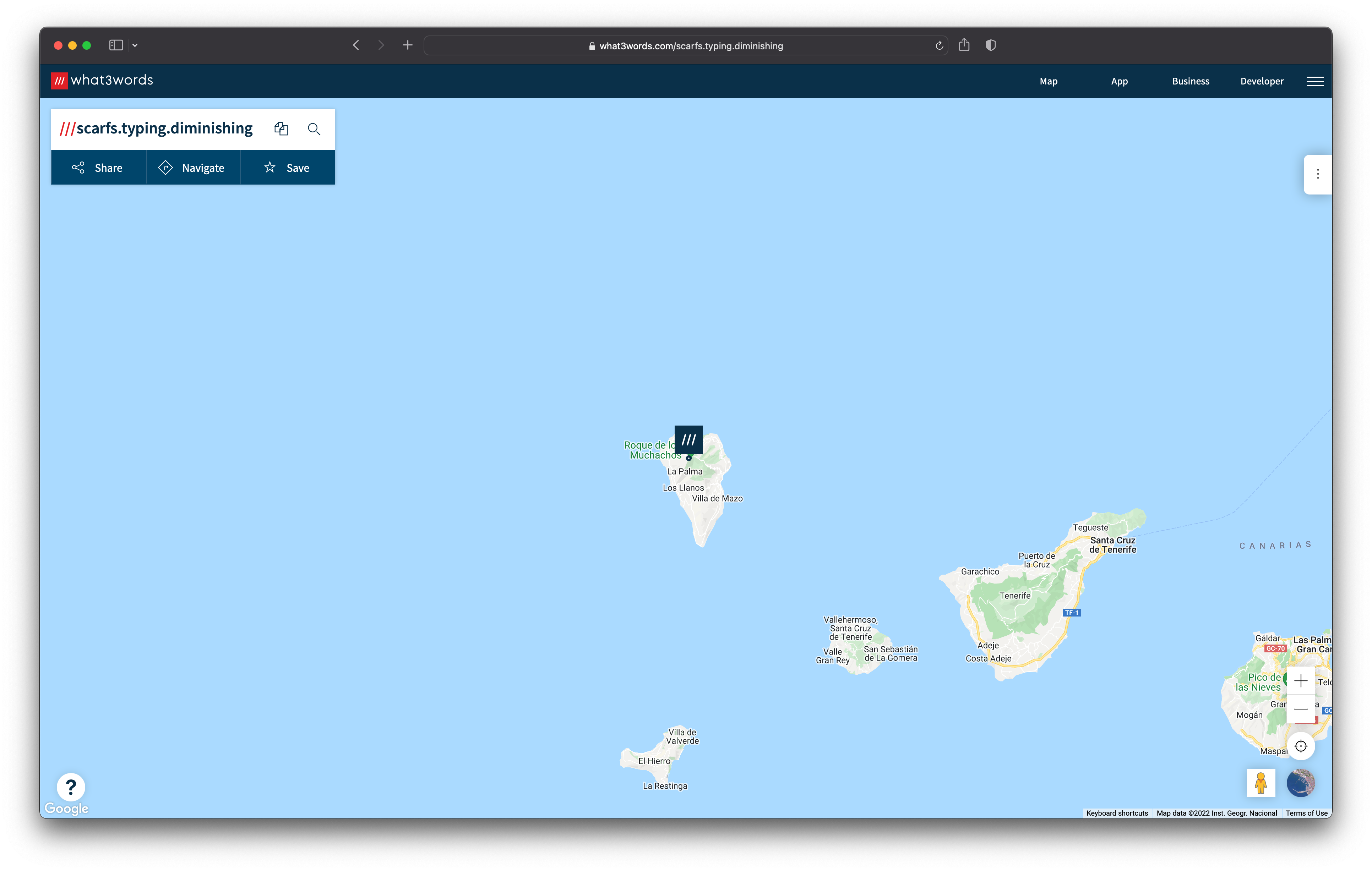
There is no need to dig, the grid is laid out on the surface
— Phases ○ ◑ ● ◐ (@Phases_0x) April 4, 2022
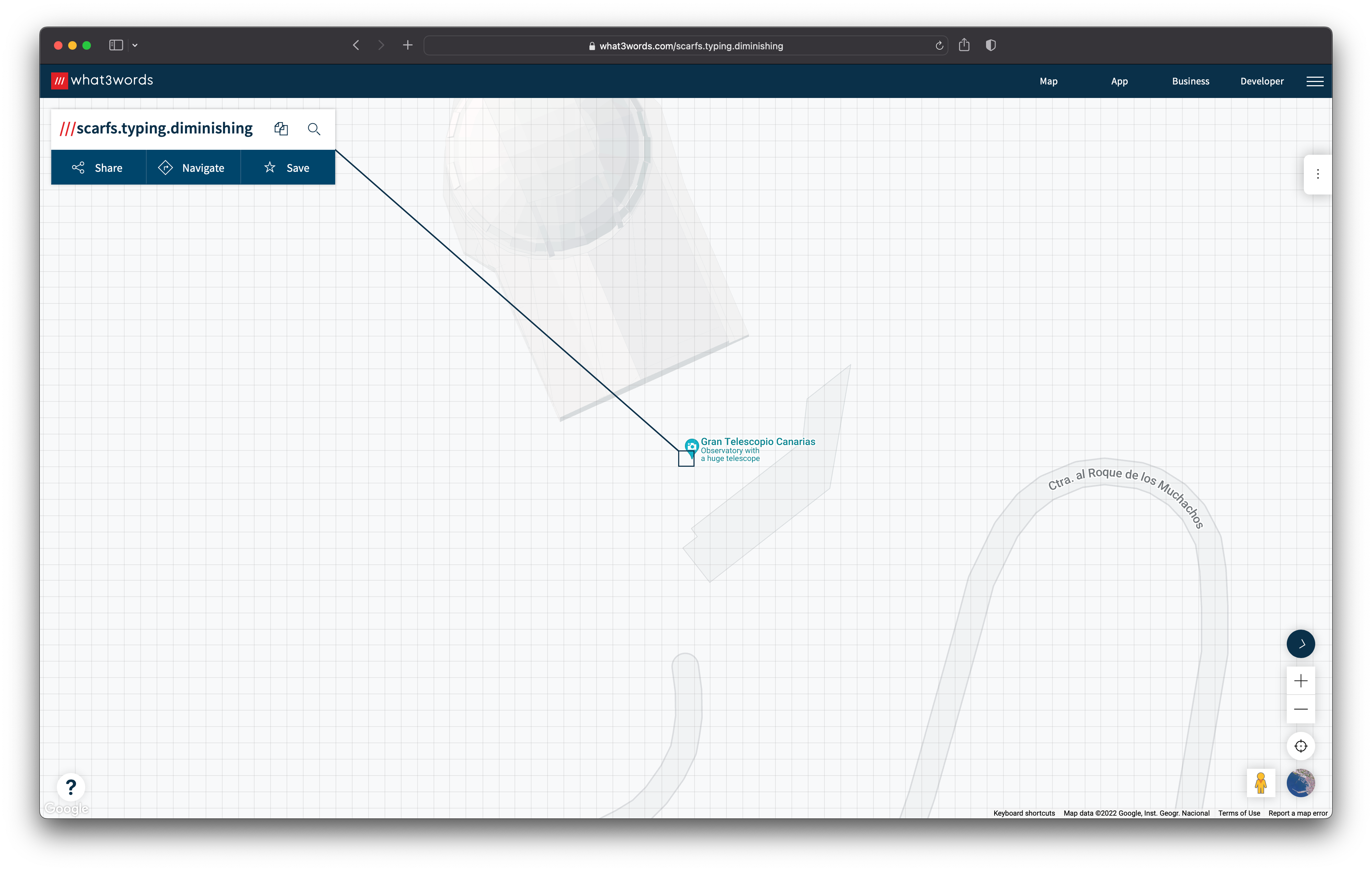
To move forward, you must go back. The structure is the key
— Phases ○ ◑ ● ◐ (@Phases_0x) April 4, 2022
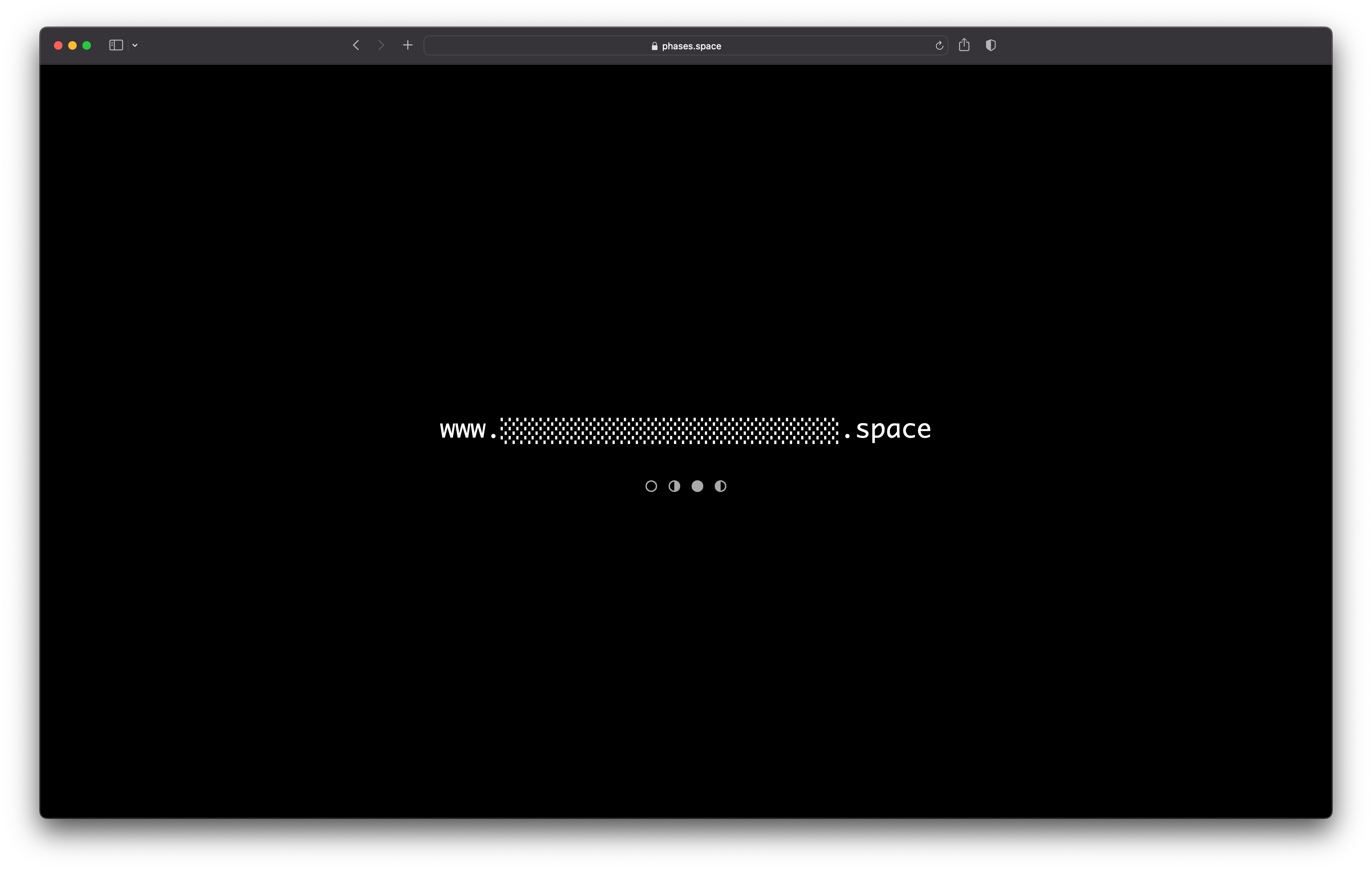
What seems like an end, may be a beginning
— Phases ○ ◑ ● ◐ (@Phases_0x) April 4, 2022
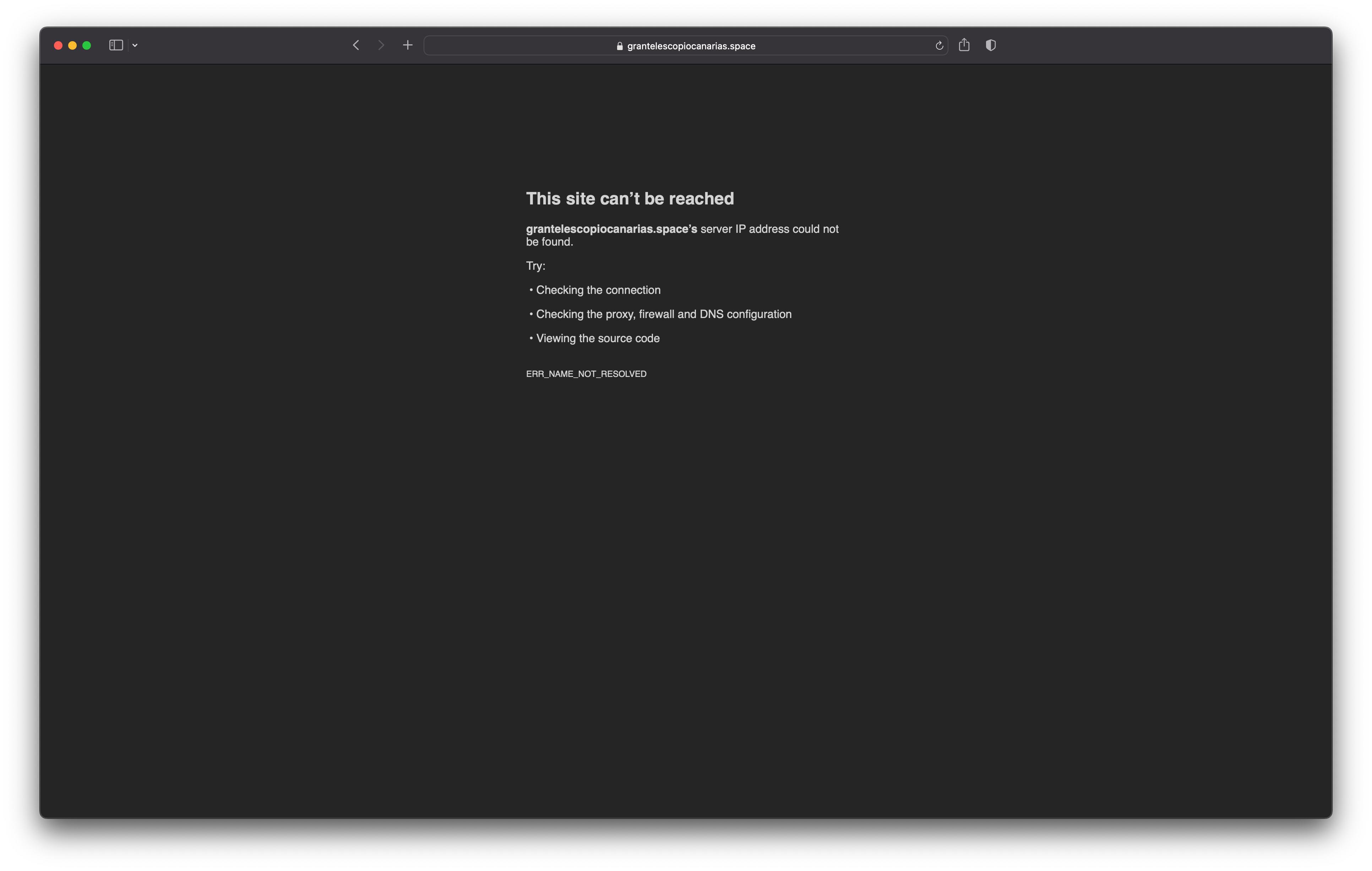
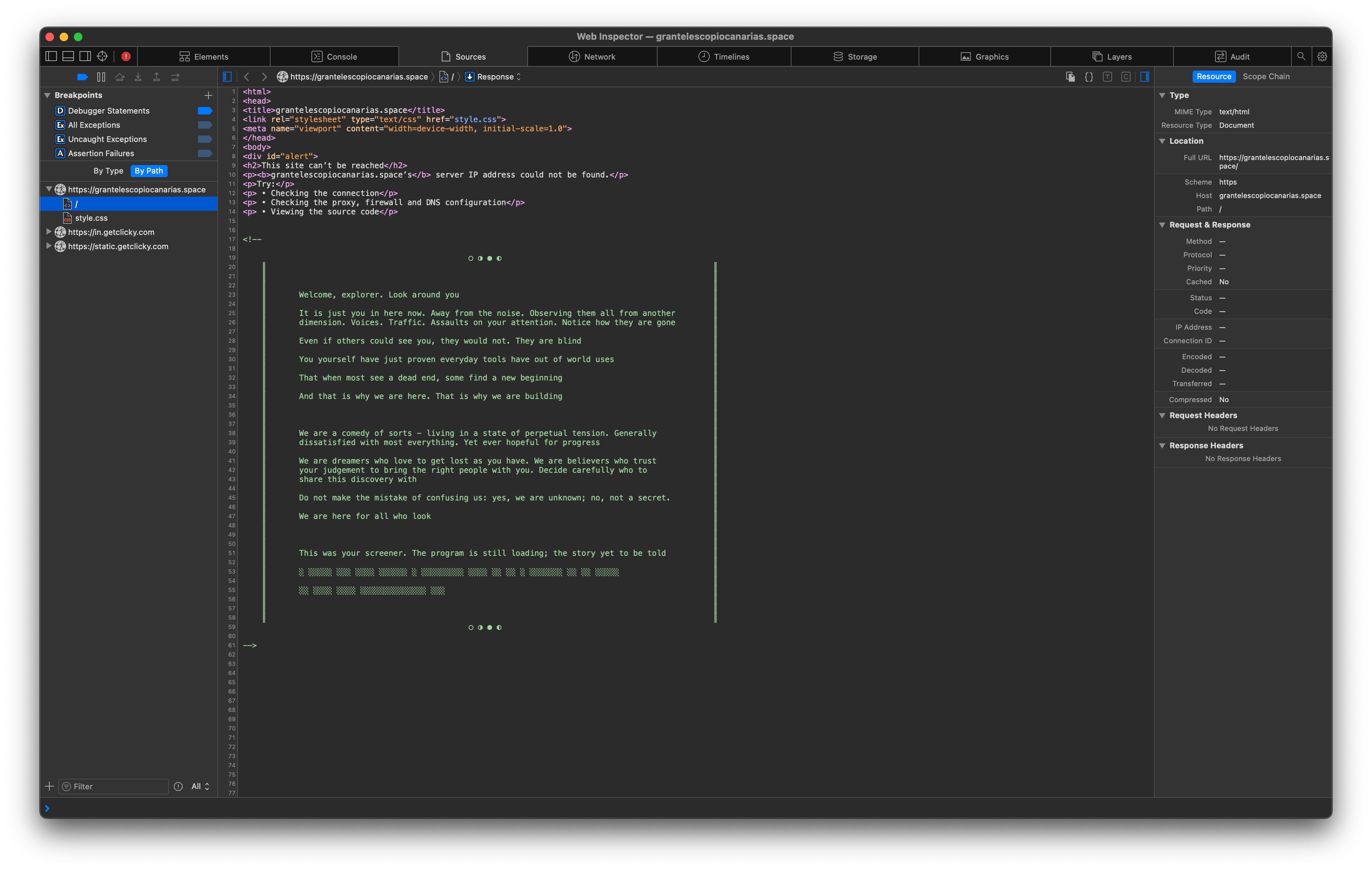
Almagestum
May 2022
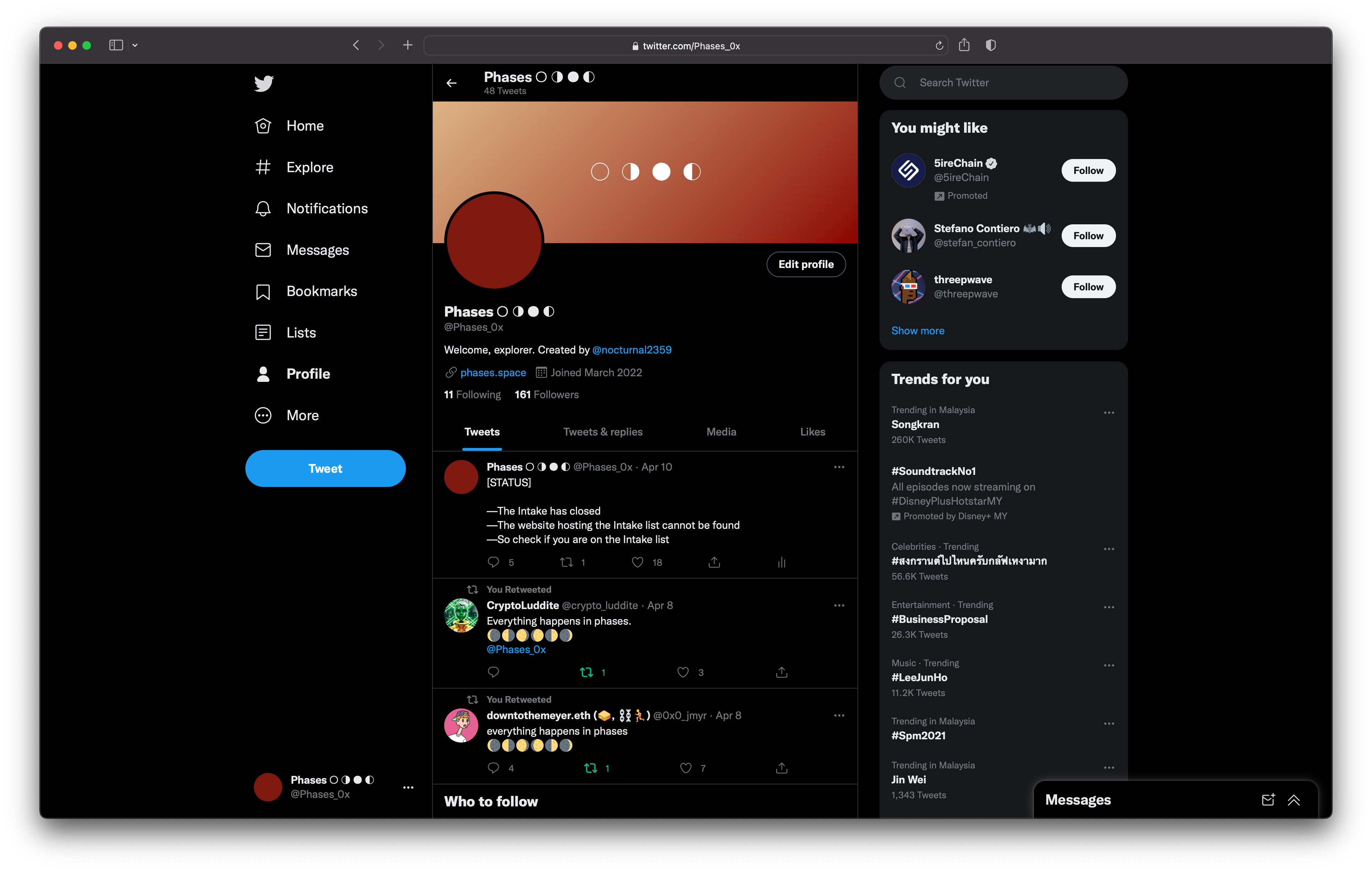
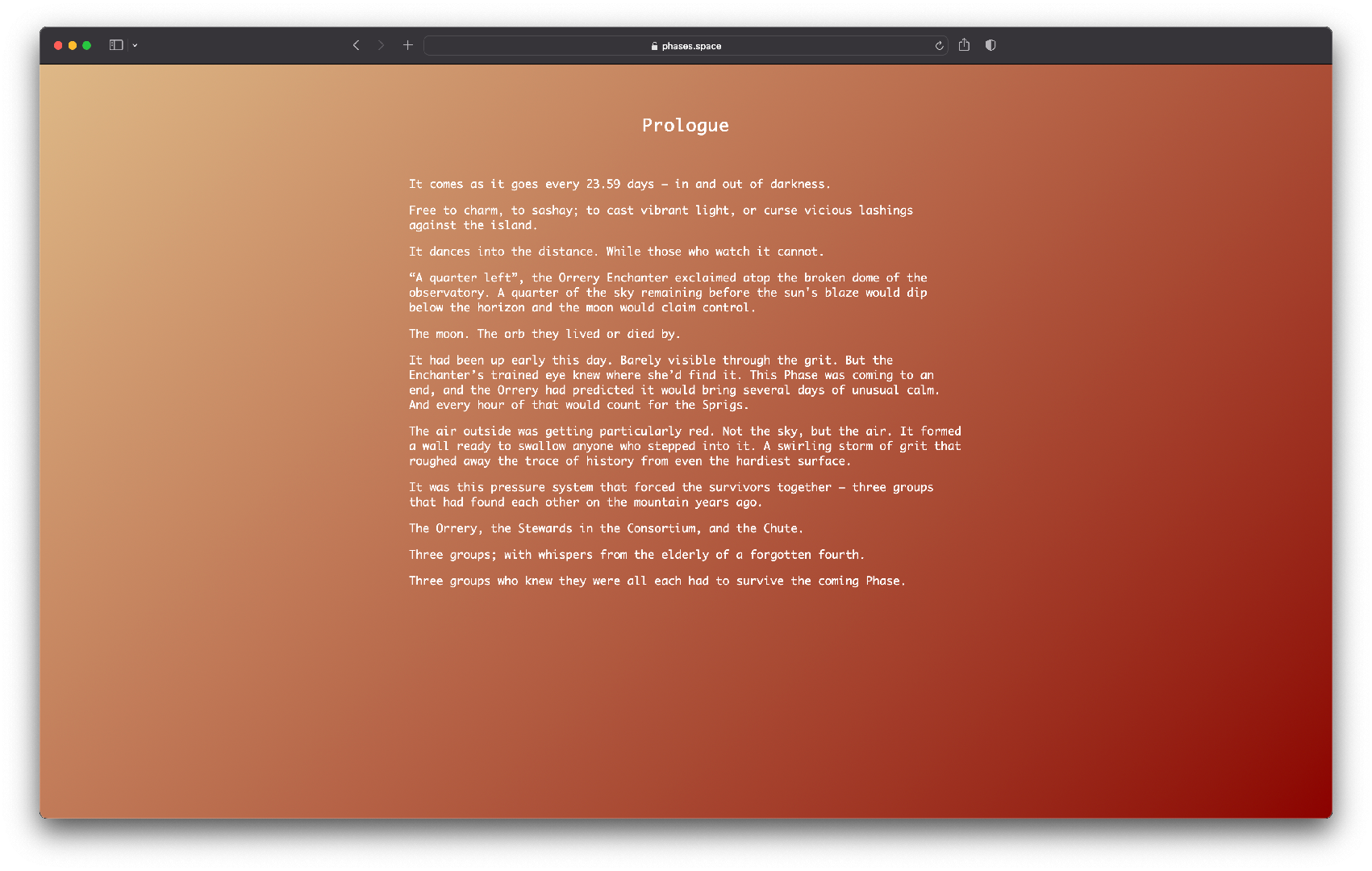
0x2ee2781Aa3e86966C56086E1e7BF59387B967b6a
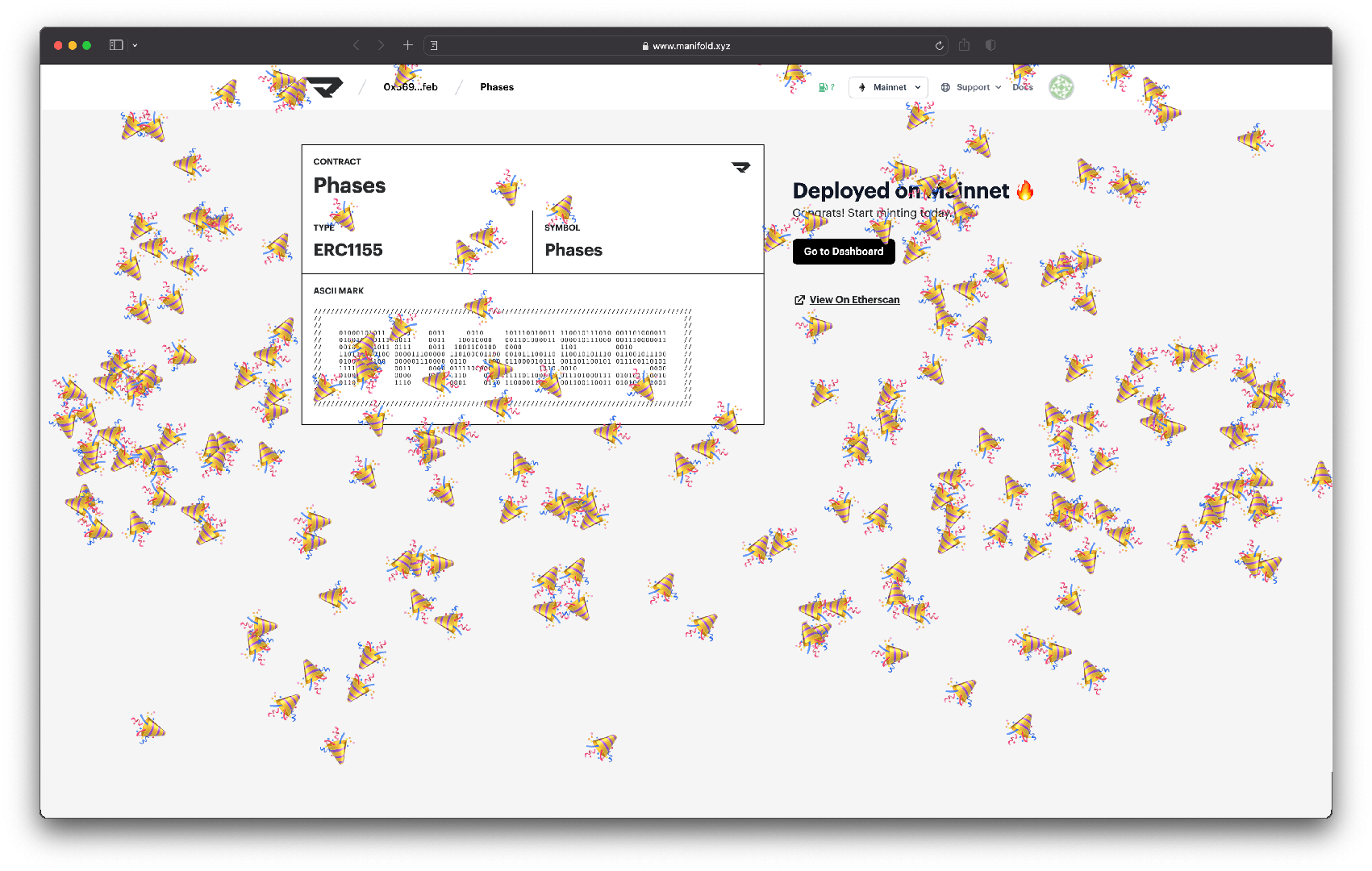
[Network under construction]
— Phases ○ ◑ ● ◐ (@Phases_0x) April 13, 2022
Almagestum
— Phases ○ ◑ ● ◐ (@Phases_0x) May 10, 2022
[This is not a financial game. But seems to be caught in one. Many messaged already expressing concern about bandwidth because of [reasons]. It’s hard to have responsible fun, when things are hard. The starting cue is now clear(?); hopefully everything else is clear by the next]
— Phases ○ ◑ ● ◐ (@Phases_0x) May 10, 2022